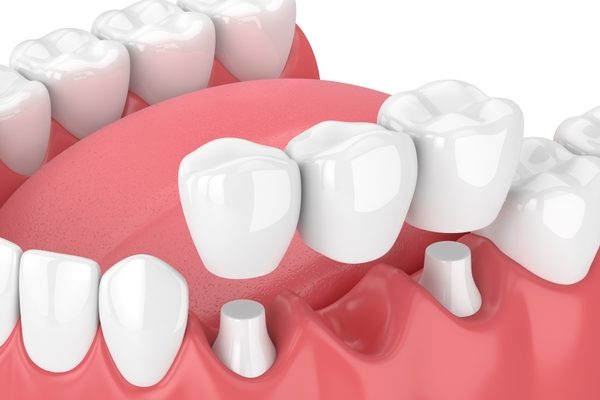“I hate my dentures! I cannot seem to bite anything with them.”
“They drop out of my mouth when I sneeze.”
“I avoid going out for meals with my friends as I am afraid my dentures might fall out when I eat.”
Are you familiar with these statements?
Dentures are removable prosthesis used to replace missing teeth, tissue and bone. They can also help lift sagging facial muscles. Dentures can be used to replace all missing teeth (full dentures) or some teeth (partial dentures). They are made of acrylic (pink plastic), and/or cobalt chrome (metal) or nylon (flesh-coloured flexible material).
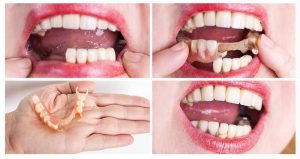
In this article, we will highlight four of the most common problems with dentures, as well as solutions to make wearing dentures more comfortable. Read on to see how you can improve your quality of life if you are struggling with your dentures.
What are common problems with dentures?
1. Reduced Retention
Full dentures are retained on the jaw via suction as there are no teeth present to secure the dentures. Thus, it takes only 15% of pressure to dislodge full dentures. This is the reason why patients often complain they cannot bite into an apple, or similar hard substances, without dislodging their dentures.
2. Unsightly Clasp
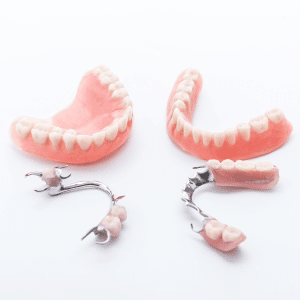
On the other hand, partial dentures require metal clasps to help retain the denture in the mouth.
Clasps are usually placed on the most posterior tooth to prevent them from showing when you smile. However, if you are missing most of your teeth, a clasp might have to be placed at a tooth further in front, which may make it more visible to others.
3. Food Trap and Smell
If the denture is unretentive or unstable, movement during eating can cause food to go under the base of the denture (between the denture and your gums), resulting in pain. If this food is not rinsed out after every meal, bad breath can ensue.
Even with properly-made dentures, there are corners under the contour of teeth that cannot be filled by a denture. This is known as an undercut, as shown below. Food can become trapped in these spaces and lead to bad breath as well.

4. Poor Smile
A nice smile follows the U-shape contour of our lower lip. However, since denture teeth are made of plastic, they can wear down faster compared to natural teeth over time, giving the wearer a reverse smile (or a Dracula smile!) as shown below.

So, are dentures a lost cause?
Definitely not! Dentures still have their place in modern dentistry. It is a simple, inexpensive treatment, and it is not invasive, as opposed to other options. There are various steps that can be used to improve the problems with dentures.
Solutions To Common Issues With Dentures
1. Solutions for Reduced Retention
A. Regular Checks and Replacements
Dentures are not made to last forever. Once teeth are extracted, the jaw bone will start to shrink (resorb). This resorption process happens slowly over the years. With denture wearing, the bone resorption process speeds up a little due to the pressure applied to the bone during while wearing dentures.
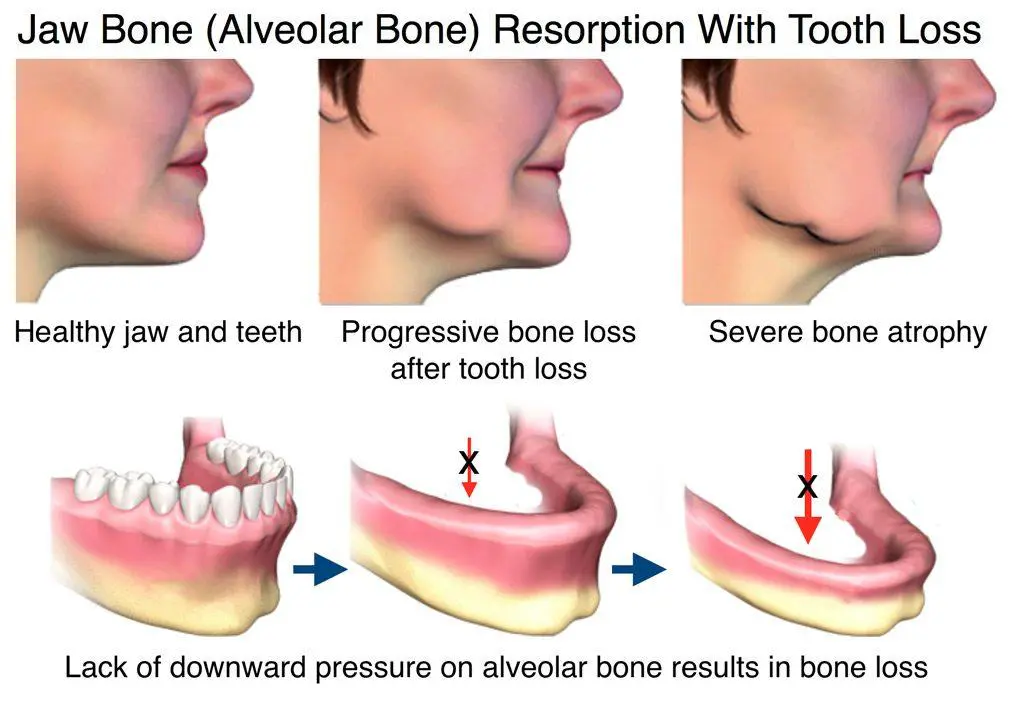
As such, we cannot expect dentures to perfectly fit the jaw bone forever. I have patients coming in with dentures that are thirty years old! Dentures should be checked yearly, and an ill-fitting denture should be replaced. Dentures should be relined every two to three years, and replaced every five to eight years. Otherwise, a poor fitting denture can result in greater bone loss.
Thus, taking proper steps can help create a more retentive denture with the help of a well-trained dentist and a laboratory.
A proper denture takes at least four to five visits to complete. A second impression (mould) should be taken with a custom impression tray to ensure an accurate base upon which the denture is constructed.
B. Implants
Implants can also be placed to help retain a denture. Such systems rely on clips to hold the denture onto the implant. The denture is still removable and has to be removed for cleaning. With implants, the retention is strong enough for a patient to bite into an apple without dislodging the denture.
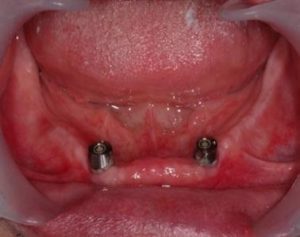
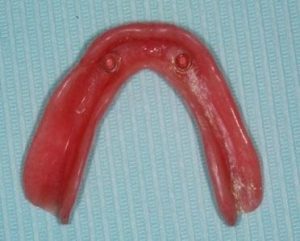
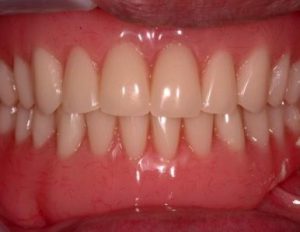
Multiple implants (four to five implants) can be placed to help retain a fixed bridge. A fixed partial denture supported by implants is permanent and does not have to be removed.
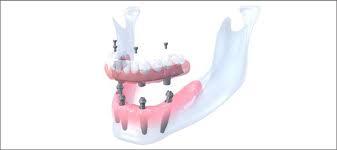
2. Solutions for Unsightly Clasps
For replacement of one to two missing teeth, a flexible denture made of nylon can be used, and the clasps are made to match the colour of the gums. These nylon clasps are less conspicuous.
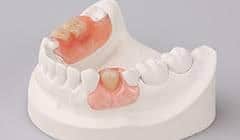
Implants can also be used to remove the need for clasps. One or two implants can be strategically placed to secure the removable partial denture. Such treatment is inexpensive, and straightforward.
Implants can be placed on the upper jaw to replace the need for clasps, as shown in Pictures A and B. They can also be used on the lower jaw to replace the two metal clasps seen in Picture C.
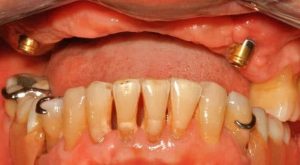
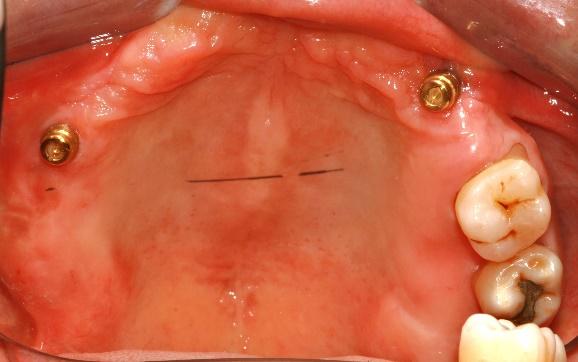
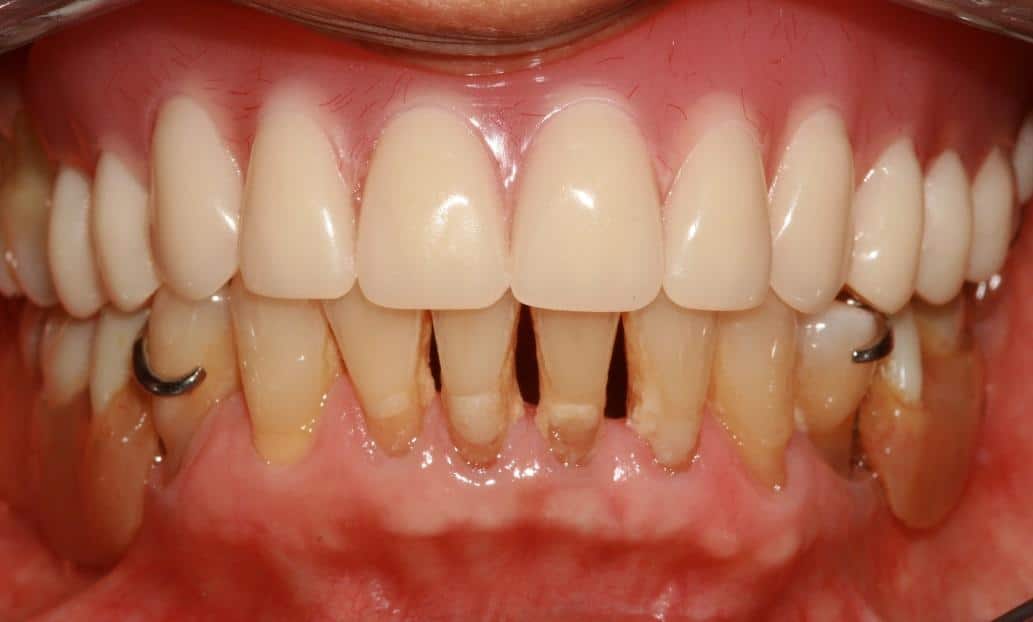
3. Solutions for Food Trap and Smell
Food trap, and the resulting smell, can be reduced with proper denture hygiene and tooth brushing. Ensuring that your dentures fit properly also helps reduce food trap due to dentures. You should adhere to the following tips to ensure proper hygiene for your dentures.
- Your dentures should be removed after every meal and rinsed. Tooth brushing can be carried out if there is a lot of food trap. Otherwise, simple rinsing of the mouth is sufficient.
- Normal hygiene procedures are also important for denture wearing patients. Tooth brushing should be carried out twice a day with additional aids, such as an interdental dental brush (as shown in Picture D) to brush the sides of teeth next to your missing tooth space. Flossing should also be done between teeth spaces.
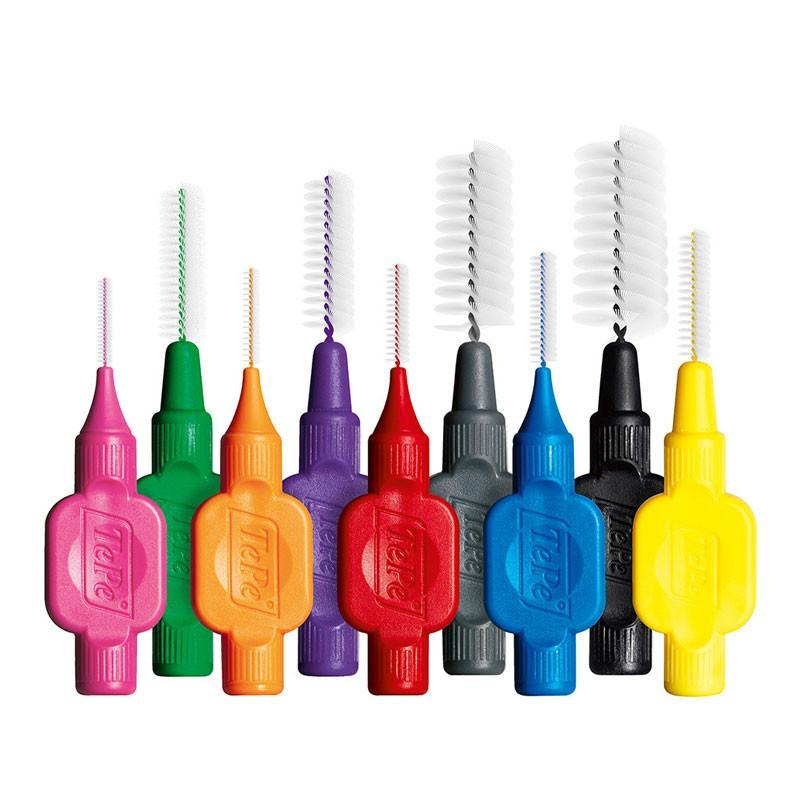
Picture D - All surfaces of the denture must be cleaned thoroughly twice a day. This is done outside of the mouth (by removing your dentures). Your dentures should not be worn at night.
- Denture brushes, featured in Picture E, help you reach difficult spaces to clean them.
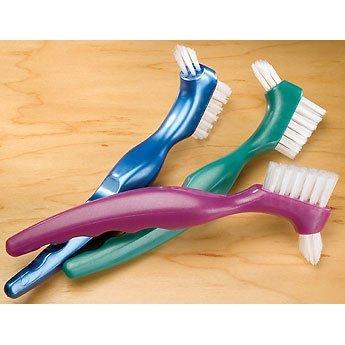
Picture E - Stains can also be removed with denture cleansing tablets.
Regular dental checks are encouraged twice a year to check for decay and gum disease. If the wearer has no teeth present, he or she should still see the dentist annually to check on the fit of the dentures and to assess the health of the mucosa (denture-supporting tissues). These steps combined can reduce food trap and smell, increasing your comfort.
4. Solutions for Poor Smile
Dentures should be remade every five to eight years to reduce the wear on your denture teeth in the more aesthetic zones, which can result in a less visually appealing smile. By getting them remade, your smile can appear more youthful.
Thus, dentures are a good option for replacing missing teeth if one takes proper care and upkeep. If you are interested in more information, you may call our clinics. You can also visit our dentists if you are interested in getting dentures, or in getting them checked out.
You can explore other forms of treatment to compliment denture treatment to enhance your smile, such as teeth whitening, porcelain veneers or crowns and braces.




